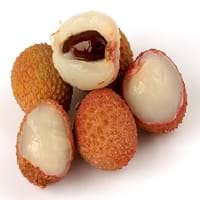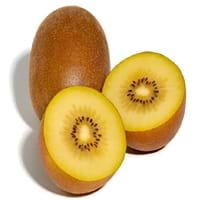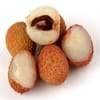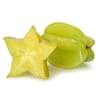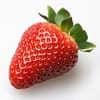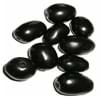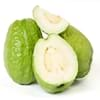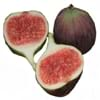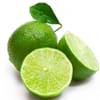Health Benefits
Cancer prevention, Cures gastro-intestinal troubles, Heart care, Muscle pain relief, Prevents blindness from diabetes
Asthma treatment, Heart care, Improves stomach health, Regulation of heart rate, Treatment of skin Diseases
General Benefits
Boosts immune system, Digestive aid, Fights against infections, Helps in weight loss, Maintains healthy cholesterol level, Strengthens bones
Boosts immune system, Controls blood pressure, Eye care, Helps in weight loss
Skin Benefits
Anti-aging benefits, Skin rejuvenation
Brightens and lightens complexion, Heals sunburn, Reduces wrinkles, Skin rejuvenation, Treatment of acne, Treatment of dark spots, Treatment of skin diseases
Hair Benefits
Promotes longer and healthier hair, Protects hair
Prevents hair loss, Promotes longer and healthier hair, Treatment of dandruff
Allergy Symptoms
Coughing, Diarrhea, Headaches, Hives, Itching, Labored Breathing, Nausea, Runny nose, Swelling of mouth, tongue or lips, Vomiting, Watery eyes
Abdominal pains, Anaphylaxis, Breathing difficulty, Itching in tongue and other parts of mouth, Itching sensation in throat, Swelling of mouth, tongue or lips, Vomiting
Side Effects
May cause abdominal pain, Diarrhoea, Mouth irritation, Throat irritation, Weight gain
Allergic reaction, Diarrhoea, Skin rash, Possibly unsafe during pregnancy
Best Time to Eat
As a snack in the late afternoon, Don't consume at night and before bed, Eat the fresh ones, avoid mixing with any other foods, don't eat after meal., Morning time (before lunch), Strictly avoid empty stomach
Any time except an hour after meal
Vitamin B5 (Pantothenic Acid)
Vitamin C (Ascorbic Acid)
Vitamin K (Phyllochinone)
Calories in Fresh Fruit with Peel
Not Available
Calories in Fresh Fruit without Peel
Not Available
Calories in Frozen Form
Not Available
Type
Tree fruit, Tropical
Tropical
Season
Spring, Summer
Spring, Summer, Winter
Varieties
Emperor fruit, Mauritiu, Sweet Heart, Brewster, Haak Yip and Bengal
Qing Yuan #27, Qing Yuan #29, Qing Yuan #6 and Huang Yan
Color
Bright red, Pink red
Brown, Yellow
Inside Color
Greyish-white
Yellow
Taste
Crunchy, Juicy, Sweet
Sweet
Origin
China, Indonesia, Philippines, Vietnam
China
Soil Type
Alluvial, Loam, Well-drained
Well-drained
Climatic Conditions
Absence of strong wind, Cold, Dry, Without frosts
Cold, Sunny
Facts about
- The seed of Lychee fruit is toxic & can adversely affect the digestive system.
- This fruit gives a smoky flavor when eaten dried.
- This fruit is a symbol of love and romance in China.
- The name Kiwi is due to its resemblance with 'Kiwi' bird.
- This variety of Kiwi was developed by New Zealand, it is not fuzzy on the outside and it has a taste reminiscent of the mango fruit.
Other Countries
Australia, India, South Africa, Thailand, United States of America
Chile, France, Greece, Iran, Japan, New Zealand, Portugal, Turkey, United States of America
Top Importer
Hong Kong
United States of America
Top Exporter
China
New Zealand
Botanical Name
Litchi chinensis
Actinidia chinensis
Synonym
Nephelium litchi
Not Available
Subkingdom
Tracheobionta
Tracheobionta
Division
Magnoliophyta
Magnoliophyta
Class
Magnoliopsida
Magnoliopsida
Subclass
Rosidae
Dillenhidae
Order
Sapindales
Ericales
Family
Sapindaceae
Actinidiaceae
Species
L. chinensis
A. chinensis
Generic Group
Soapberry
Kiwi
Difference Between Lychee and Gold Kiwi
We might think that Lychee and Gold Kiwi are similar with respect to nutritional value and health benefits. But the nutrient content of both fruits is different. Lychee and Gold Kiwi Facts such as their taste, shape, color, and size are also distinct. The difference between Lychee and Gold Kiwi is explained here.
The amount of calories in 100 gm of fresh Lychee and Gold Kiwi with peel is Not Available and 60.00 kcal and the amount of calories without peel is 66.00 kcal and Not Available respectively. Thus, Lychee and Gold Kiwi belong to Low Calorie Fruits and Low Calorie Fruits category.These fruits might or might not differ with respect to their scientific classification. The order of Lychee and Gold Kiwi is Sapindales and Ericales respectively. Lychee belongs to Sapindaceae family and Gold Kiwi belongs to Actinidiaceae family. Lychee belongs to Litchi genus of L. chinensis species and Gold Kiwi belongs to Actinidia genus of A. chinensis species. Beings plants, both fruits belong to Plantae Kingdom.
